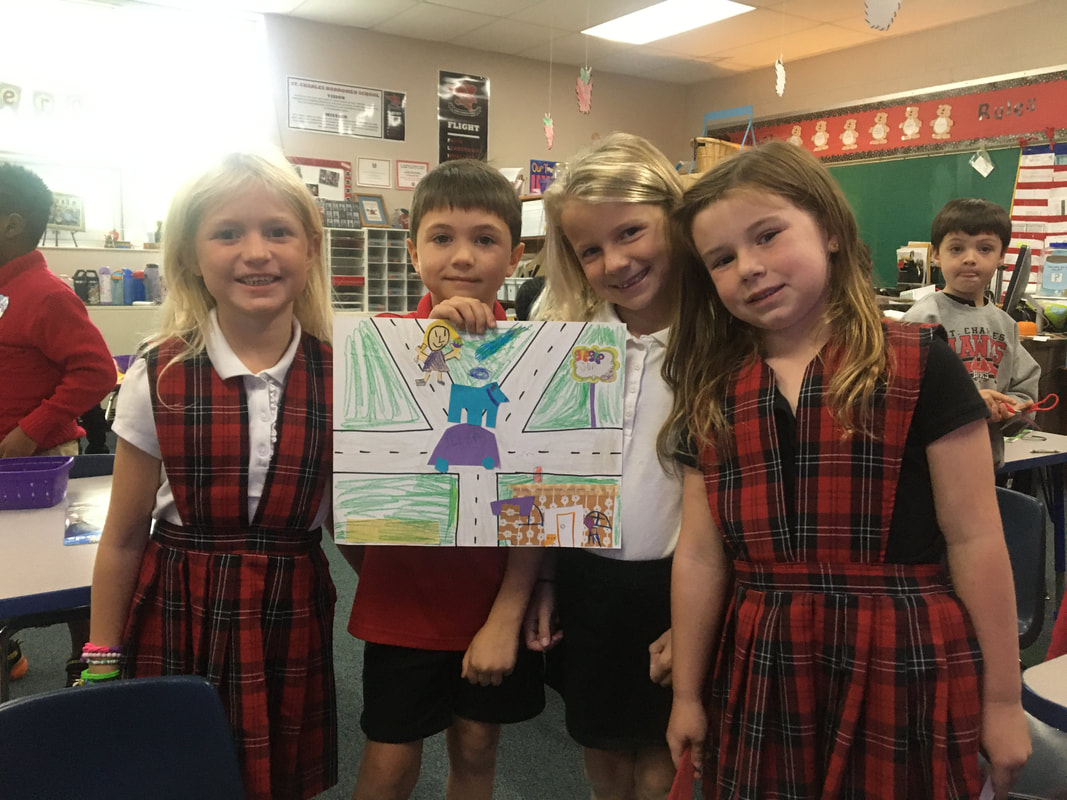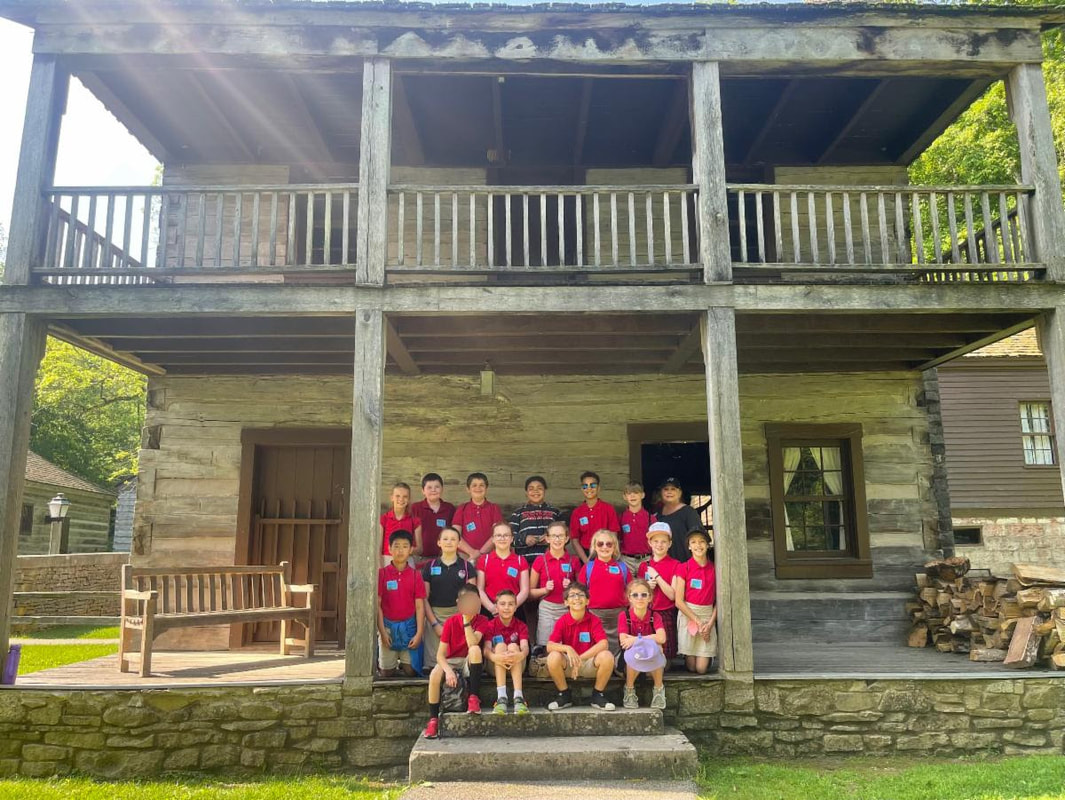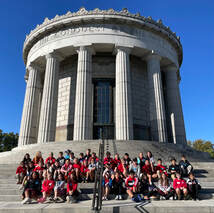Elementary Social Studies
The Network Social Studies series is published by McGraw-Hill Education. It enables students to gain building blocks for critical thinking and analysis as they use inquiry to learn about history, geography, economics, and civics. It is purposefully designed to easily meet social studies goals and state standards for each grade. It has a flexible design that facilitates learning in the classroom or remotely.
Kindergarten through 3rd grade studies communities and some United States History.
4th grade studies the history, geography, government, and economy of the state of Indiana. All of the field trips relate to Indiana history. In late September, students visit Vincennes, which was the capital of Indiana Territory, home of William Henry Harrison, the 23rd President of the US, the first Basilica in Indiana Territory, and the entombment of Bishop Simon Bruté, who brought St. Mother Theodore Guerin from France. They also visit the George Roger Clark Memorial, an old French fur trader’s home, and the original government offices of Indiana Territory, learn about early schools at that time, and watch how early newspapers were printed.
On December 11th every year, we have a standing invitation to celebrate Indiana’s birthday at the State House in Indianapolis. Students cast votes in the House and the Senate and visit the Supreme Court, where they get to try on Supreme Court justices’ robes. The trip ends with a presentation from our Governor, the Chief Justice of the Supreme Court, and someone from the House or Senate.
In April, the class makes a trip to the Indianapolis Motor Speedway. They learn about the history of the track, the cars and their tires, the drivers’ suits, how the drivers physically train, and what each flag means. A stop at the museum is also part of the day.
In May, students visit Spring Mill State Park. They spend time in the Village, which is frozen in time to the 1880’s. They see the Grist Mill, watch corn meal being ground, and stop at the museum in the upper level of that structure. They also watch the village blacksmith and a leather worker. As they leave the park, they stop by the Gus Grissom Memorial. There, students see one of Grissom’s space suits, an actual space capsule, and other various artifacts.
On December 11th every year, we have a standing invitation to celebrate Indiana’s birthday at the State House in Indianapolis. Students cast votes in the House and the Senate and visit the Supreme Court, where they get to try on Supreme Court justices’ robes. The trip ends with a presentation from our Governor, the Chief Justice of the Supreme Court, and someone from the House or Senate.
In April, the class makes a trip to the Indianapolis Motor Speedway. They learn about the history of the track, the cars and their tires, the drivers’ suits, how the drivers physically train, and what each flag means. A stop at the museum is also part of the day.
In May, students visit Spring Mill State Park. They spend time in the Village, which is frozen in time to the 1880’s. They see the Grist Mill, watch corn meal being ground, and stop at the museum in the upper level of that structure. They also watch the village blacksmith and a leather worker. As they leave the park, they stop by the Gus Grissom Memorial. There, students see one of Grissom’s space suits, an actual space capsule, and other various artifacts.
The Social Studies curriculum in 5th grade focuses on early United States history. They go back in time to learn about the very first people who lived in the Americas, including Native American groups and how they each adapted to their environment in order to survive. They look into exploration from European explorers, and early settlements of New Spain, New France, and the 13 original colonies, and continue through the many events and people who helped shape our country through the American Revolution. They also learn about the development of early government, the Declaration of Independence, and the Constitution, as well as the current branches of government. Geography and map skills are used to learn the regions of the US, including identifying the 50 states on a map and naming their capitals, as well as major mountain ranges, deserts, rivers, lakes, oceans, climates, and time zones.
Our Social Studies Curriculum pairs great with weekly visits from Law Students in conjunction with the Maurer Law School Outreach for Legal Literacy program. The law students teach the students about the Justice System, criminal and civil law, and it culminates in a field trip to the Law School in the Spring. Students work on developing their understanding of the government around them and open their minds to potential career and higher education opportunities for the future.
Our Social Studies Curriculum pairs great with weekly visits from Law Students in conjunction with the Maurer Law School Outreach for Legal Literacy program. The law students teach the students about the Justice System, criminal and civil law, and it culminates in a field trip to the Law School in the Spring. Students work on developing their understanding of the government around them and open their minds to potential career and higher education opportunities for the future.





